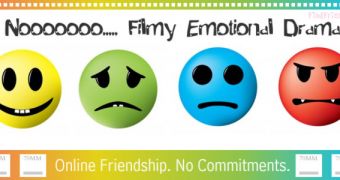The social network attacked by An0nym0us sn3Ak3r, a member of t34m t!g3R, is not exactly Facebook or Twitter, but since he managed to spill more than 57,000 details, it's a hacking operation that's worth mentioning.
E Hacking News reports that the FindFriendz.com social network website is the one that leaked the massive quantities of information as a result of an SQL injection attack which took advantage of a common vulnerability.
The hacker published only a small part of his loot, but he claims that he will make the rest available for anyone that requests it.
After studying the list I came to a conclusion that people still fail to choose strong passwords when it comes to protecting their virtual assets. Out of the small percentage of users whose credentials were leaked, more than 100 had the classic “123456” password to protect their accounts.
In such situations hackers don't even need to hack anything in order to gain access.
I will take this opportunity to once again reveal the necessary steps in setting a strong password.
First of all, think of the title of a song or a common sentence. For instance, “Queen – I want to break free.” This can be one of your favorites or something that you will not easily forget.
Then you take the first letters of each word and form the password “QIwtbf”, keeping in mind that uppercase letters should remain in uppercase to make it even stronger.
To make it even harder to guess, you can add a few small tricks. The previous code can be turned into “Q-Iw2bf”, a string of characters that will surely not be guessed by anyone who tries to illegally access you account.
If your account gets exposed as a result of a hacking operation, there's not much you can do about that, but at least make sure you don't invite any malicious characters to take over your assets.

 14 DAY TRIAL //
14 DAY TRIAL //